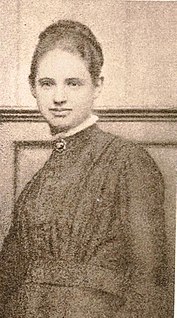A Quote by Johann Wolfgang von Goethe
Stood I, O Nature! man alone in thee, Then were it worth one's while a man to be.
Related Quotes
If ever two were one, then surely we. If ever man were lov'd by wife, then thee; If ever wife was happy in a man, Compare with me, ye women, if you can I prize thy love more than whole mines of Gold. Or all the riches that the East doth hold. My love is such that rivers cannot quench, Nor ought but love from thee, give recompense. Thy love is such I can no way repay, The heavens reward thee manifold repay, Then while we live, in love let's so persevere That when we live no more, we may live ever.
Count me o'er earth's chosen heroes, - they were souls that stood alone, While the men they agonized for hurled the contumelious stone, Stood serene, and down the future saw the golden beam incline To the side of perfect justice, mastered by their faith divine, By one man's plain truth to manhood and to God's supreme design.
Thy soul shall find itself alone ’Mid dark thoughts of the gray tombstone— Not one, of all the crowd, to pry Into thine hour of secrecy. Be silent in that solitude, Which is not loneliness—for then The spirits of the dead who stood In life before thee are again In death around thee—and their will Shall overshadow thee: be still. [...]
Ecclesiastes names thee Almighty, the Maccabees name thee Creator, the Epistle to the Ephesians names thee Liberty, Baruch names thee Immensity, the Psalms name thee Wisdom and Truth, John names thee Light, the Book of Kings names thee Lord, Exodus names thee Providence, Leviticus Sanctity, Esdras Justice, creation names thee God, man names thee Father; but Solomon names thee Compassion, which is the most beautiful of all thy names.
Nature is man's inorganic body -- that is to say, nature insofar as it is not the human body. Man lives from nature -- i.e., nature is his body -- and he must maintain a continuing dialogue with it is he is not to die. To say that man's physical and mental life is linked to nature simply means that nature is linked to itself, for man is a part of nature.
There are hidden contradictions in the minds of people who "love Nature" while deploring the "artificialities" with which "Man has spoiled Nature.'" The obvious contradiction lies in their choice of words, which imply that Man and his artifacts are not part of "Nature" : but beavers and their dams are.




































